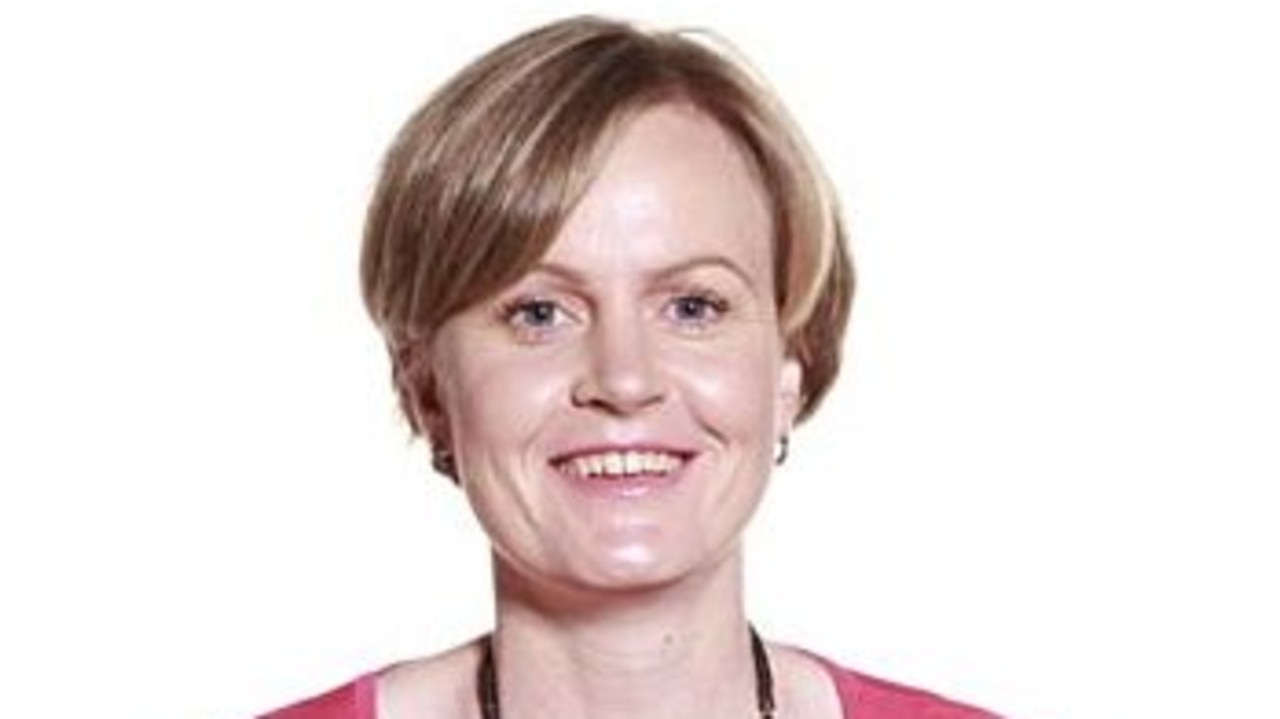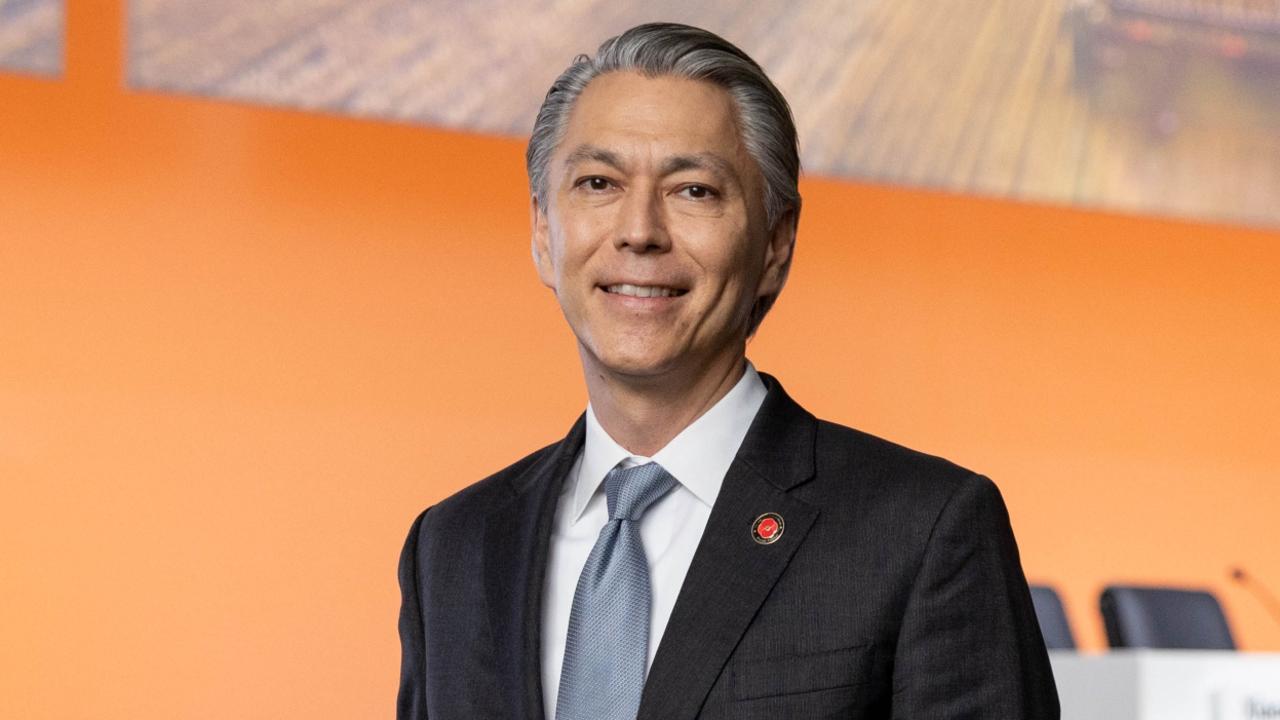Optus boss Kelly Bayer Rosmarin misses mark inside the Singtel briefing
LISTEN | Kelly Bayer Rosmarin was caught between customers and selling the telco’s strategy.
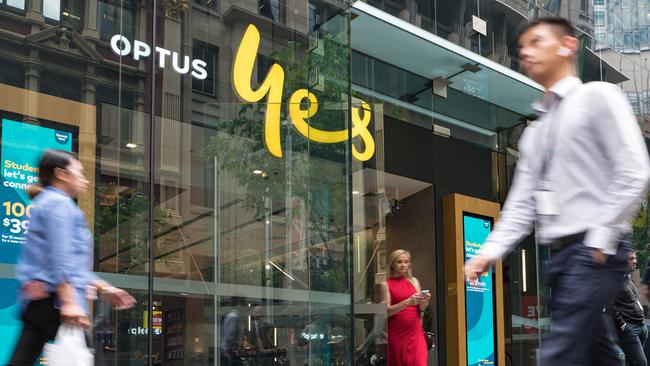
Business
Don't miss out on the headlines from Business. Followed categories will be added to My News.
Given the competing interests, it’s always a challenge for chief executives to hone a consistent message that wins over both investors as well customers.
And coming off the back of the worst network outage in Australia’s modern telco history, Optus boss Kelly Bayer Rosmarin certainly struggled to get the right line across.
In a closed briefing to global investors of Optus parent Singapore Telecommunications that came just a day after the network crash, Bayer Rosmarin was clearly trying to downplay the fundamental brand damage to the Australian telco.
Instead, investors were told that the focus remained on executing strategy – including helping to deliver $230m in cost cuts in the coming year – while resisting any suggestion of paying out compensation or resorting to discounting as a lever to protect market share.
The problem was the message being delivered privately to fund managers who were based around Asia was completely at odds with the anger millions in Australia were feeling toward their telco service.
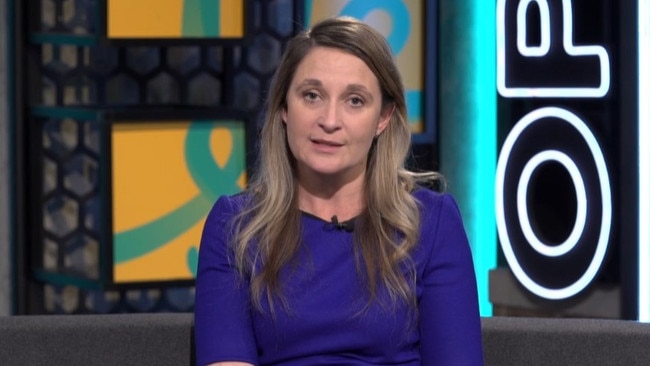
Hopefully cost-cutting and profitable growth won’t be the talking points for Bayer Rosmarin when she fronts a parliamentary committee on Friday, with Optus to feel the political sting of its network outage. Rather, the discussion should be around real investment and recognition of the impact on customers.
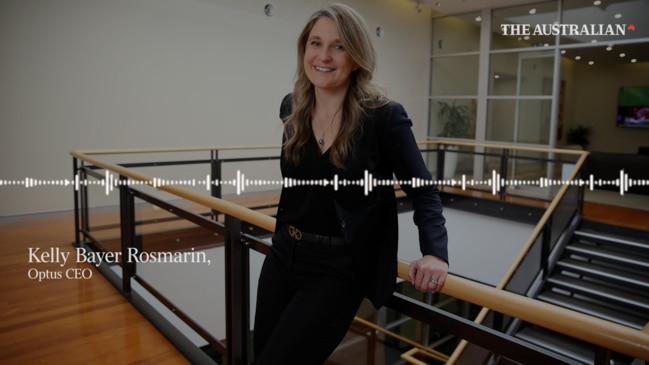
The audio of Singtel’s closed analyst briefing to global investors has now emerged and as expected much of the discussion was directed at Bayer Rosmarin who joined the web call from Sydney.
“I think what you were actually asking is are you expecting us to abandon reason and start discounting heavily, and I would say … we remain very committed, as we have been always, to profitable, sustainable growth and delivering great value for our customers,” Bayer Rosmarin said in response to one analyst’s question.
“Great value is not just about giving an excellent price, it’s also about providing a very good service and unique differentiators. That is our strategy and as horrible as (last Tuesday) was, and as much as we let our customers down, we’ll do everything we can to make up for it, at this stage I don’t see us completely abandoning a strategy that we’ve been committed to, and I believe successfully executing,” she said.
A core failure of any business would have unnerved customers. However, even after seeing rival Telstra being forced to respond to network outages in 2016 and more recently the hit to its reputation from the cyberattack, Optus was struggling to find the right response to the outage. This included weighing up the financial cost of giving customers a refund for being offline for a day.
“We do want to give a gesture of goodwill to our customers and I just want to explain that we’re not talking about direct compensation because if you took an average customer on a $49 plan, and they didn’t have service for a day, that would equate to about $1.60, and we don’t think that’s what customers want – a credit for $1.60,” Bayer Rosmarin told the briefing.
“We’re looking at what we can do to make our customers feel like they’ve been heard, that they know that we care.”

Optus has since settled on 200GB of free data as compensation, something it argues is worth as much as $100. Most mobile customers that are on large or even unlimited data plans will have little use for the data package, and many businesses faces costs higher than that.
For investors, the outage will have real financial implications for Optus and its parent Singtel. Shares in Singtel crashed nearly 5 per cent on the day of the outage.
There is the expected hit to market share with the loss of trust from customers. And while Bayer Rosmarin dismissed the prospect of financial penalties coming Optus’ way, that remains a real risk given the nature of the critical infrastructure failure.
Much attention in the briefing was around Optus’ enterprise arm that sells telco services to business and governments.
This has been an area already under pressure, it is expected to become acute following the outage. Doubts around network resilience will certainly see some big businesses look elsewhere for their connectivity needs.
Bayer Rosmarin told analysts Optus will be working with business customers “to make sure they have confidence in our operations moving forward”. She also promised to share lessons from the outage with business customers.
“Our focus has, is, and always will be on providing a resilient and robust network. So that aspect is not going to change. Hopefully, most of our customers know how even though we let them down (last Tuesday), how resilient we’ve been every other day.”
–
Bet on cash crunch
An “obsession” around balance sheet strength and debt is creating a new wave of investment bets for the influential Wall Street hedge fund run by Daniel Loeb.
This could extend to his $US11bn ($17bn) Third Point fund putting more pressure on companies to force through asset sales.
The comments by Loeb in his latest quarterly update to investors, comes as the hedge fund boss is scheduled to headline the Sohn Hearts & Minds investment conference in Sydney on Friday. All the proceeds of the conference go to medical research.
With real interest rates firmly in positive territory and now sitting at the highest level since the global financial crisis, Loeb’s Third Point fund has narrowed in on how companies are refinancing debt. Indeed, some may even struggle as borrowing costs soar.
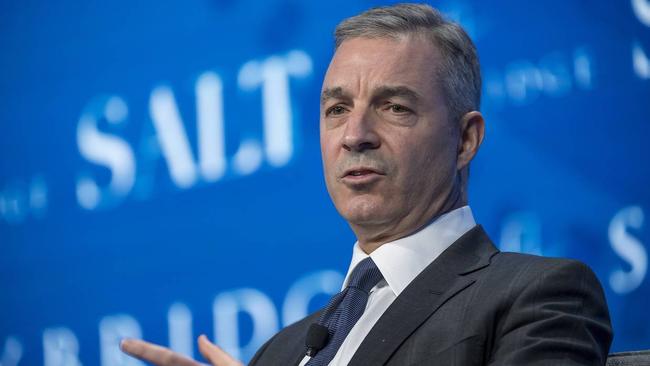
“It is hard to overstate the market’s current obsession with balance sheet strength,” Loeb tells investors.
“This is a growing area of focus for the investment team, as major systematic moves generally create great idiosyncratic opportunities that can only be uncovered through old-fashioned fundamental research”.
Investment returns will be found by distinguishing the companies that have “real leverage problems versus perceived leverage problems,” he said.
This involves narrowing in on asset sale opportunities, capital structures, and cash flow statements, Loeb says.
In recent years, Loeb has made high profile pushes agitating for changes at a string of companies including Disney, Nestle and Shell.
Loeb launched Third Point in 1996 and the fund had some of its best returns after betting on troubled Greek bonds during the Euro crisis of early last decade.
Third Point has seen a rare stumble this year after missing much of the initial boom in AI-backed tech stocks.
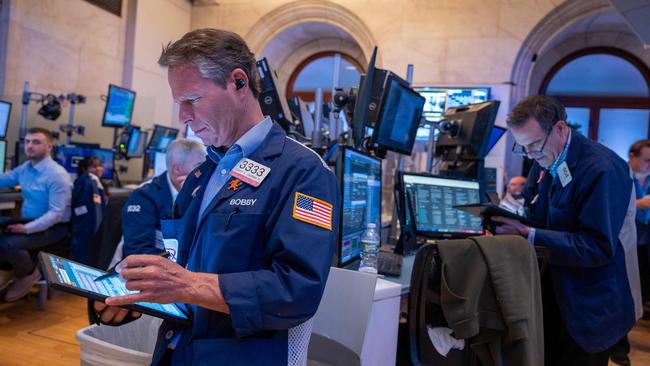
Loeb’s flagship offshore fund returned minus 3.9 per cent in the calendar year to date. This compares to the MSCI World Index of 11.6 per cent and the S&P 500’s total return of 11.6 per cent.
Third Point has delivered average annualised returns of 12.7 per cent after fees since inception, compared to 7.1 per cent for the MSCI World Index.
Returns were minus 0.9 per cent for the September quarter, with gains in Third Point’s long exposure fund offsetting losses in the hedge fund bets.
The top stocks were UBS, Vistra Corp Shell and Danaher Corp. This was offset be exposure to Pacific Gas & Electric Co, tech major Microsoft Corp, Hertz and Luxury brands business LVMH.
With bond market sell-off in recent months driving wild swings in stocks, Loeb believes the market reaction to macro developments was still “rational”.
This resulted in the continued underperformance of unprofitable growth stocks, highly-levered companies, and bonds proxies like utilities, real estate and consumer staples.
johnstone@theaustralian.com.au
More Coverage
Originally published as Optus boss Kelly Bayer Rosmarin misses mark inside the Singtel briefing




